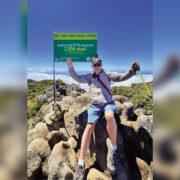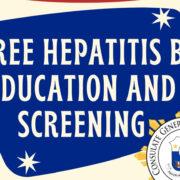KAPAG ang petitioner ng approved I-130 Petition ay namatay bago makuha ng principal beneficiary ang kanyang immigrant visa o green card, ang I-130 Petition ay magiging revoked na. May mga sitwasyon na maaaring humingi o humiling ng humanitarian reinstatement sa USCIS ang principal beneficiary. Ang humanitarian reinstatement relief ay hindi maibibigay kung ang petitioner ay namatay bago maaprubahan ang I-130 Petition. Kailangang aprubado na ang I-130 Petition para sa humanitarian reinstatement request. Discretionary sa USCIS kung ang hiling ng principal beneficiary ay aaprubahan. Walang USCIS form o filing fee para sa humanitarian reinstatement request. Kailangang ipakita ng principal beneficiary na ang mga positibong kadahilanan para sa kanya ay mas mabigat sa mga negatibong kadahilanan upang ang kanyang humanitarian reinstatement request ay maaprubahan.
Kailangang isama sa humanitarian reinstatement request ang kopya ng I-130 Approval Notice, Death Certificate ng petitioner, at Affidavit of Support ng substitute sponsor. Ang substitute sponsor ay kailangang: (1) U.S. citizen (USC) o lawful permanent resident (LPR); (2) may 18 taon gulang; at (3) siya ay asawa, magulang, biyenan, kapatid, anak, manugang, hipag, bayaw, lolo, lola, apo, o legal guardian ng principal beneficiary. Ang substitute sponsor ay kailangang may sapat na kita at pag-aaari para suportahan ang principal beneficiary at ang kanyang mga kasama sa bahay. Kailangang ipakita na hindi magiging public charge ang principal beneficiary.
Dahil isa sa mga adhikain ng mga U.S. Immigration Law ay pag-iisa at pagsama-sama ng pamilya, ang mga sumusunod ay maaaring ipakita para sa humanitarian reinstatement request: (1) hardship o paghihirap sa pamilyang USC at LPR na nakatira sa U.S.; (2) matandang edad at mga alalahanin sa kalusugan ng principal beneficiary; (3) ang matagal na pagtirang legal ng principal beneficiary sa U.S.; (4) ang kawalan o kakulangan ng family ties ng principal beneficiary sa kanyang lupang sinilangan; (5) katagalan at kabagalan ng pagproseso ng petition; at (6) iba pang positibong mga kadahilanan para suportahan ang humanitarian reinstatement request. Mainam rin na nagbigay ng mga supporting documentation para sa humanitarian reinstatement request dahil hindi maaaring maapela ito kapag ang hiling ay hindi naaprubahan ng USCIS.
* * *
When the Petitioner of an approved I-130 Petition dies before the principal beneficiary obtains an immigrant visa or gets his green card, the I-130 Petition is automatically revoked. In some cases, humanitarian reinstatement to the USCIS may be requested by the principal beneficiary of an approved I-130 Petition. Humanitarian reinstatement cannot be granted if the petitioner dies before the approval of the I-130 Petition. A written request has to be filed with the USCIS, which has discretion to determine whether to reinstate the approval of the I-130 Petition for humanitarian reasons. There is no form or fee for filing the humanitarian reinstatement request. When the positive factors outweigh the negative factors, the request may be approved by the USCIS.
A request for humanitarian reinstatement must include a copy of the Approval Notice of the revoked I-130 Petition, the Death Certificate of the Petitioner, and an Affidavit of Support by a substitute sponsor. The substitute sponsor must be: (1) a U.S. citizen (USC) or lawful permanent resident (LPR); (2) at least 18 years old; and (3) is the spouse, parent, mother-in-law, father-in-law, sibling, child, son, daughter, son-in-law, daughter-in-law, sister-in-law, rother-in-law, grandparent, grandchild, or legal guardian of the principal beneficiary. The substitute sponsor must have sufficient income and assets to support the principal beneficiary and his own household, in order to show that the principal beneficiary will not become a public charge.
Since one of the goals of U.S. Immigration Laws is family unification, the following factors may be considered to show that a favorable exercise of discretion is warranted: (1) hardships to family members who are US citizens and permanent residents living in the U.S.; (2) advanced age or health concerns of the principal beneficiary; (3) lawful residence of the principal beneficiary in the US for a lengthy period; (4) lack of ties of the principal beneficiary to his home country; (5) undue delays in processing the petition; and (6) other positive factors that support a reinstatement of the petition. Supporting documentation has to be submitted with the humanitarian reinstatement request as a denial of a humanitarian reinstatement request cannot be appealed.
* * *
ATTY. RHEA SAMSON is a Partner at LINDAIN & SAMSON LAW FIRM. Atty. Lindain and Atty. Samson are both licensed to practice law in California and in the Philippines. Both Attorneys were also professors. LINDAIN & SAMSON LAW FIRM aims to provide excellent and efficient legal representation to clients, and support clients in achieving their goals and dreams. As professors, Atty. Lindain and Atty. Samson wish to educate the younger generation, as it is through education and continuous study that one can achieve success and serve others.
Please visit our office: LINDAIN & SAMSON LAW FIRM
3580 Wilshire Boulevard, Suite 1710, Los Angeles, CA 90010
Call or text us: (213) 381.5710
Email us: [email protected].




